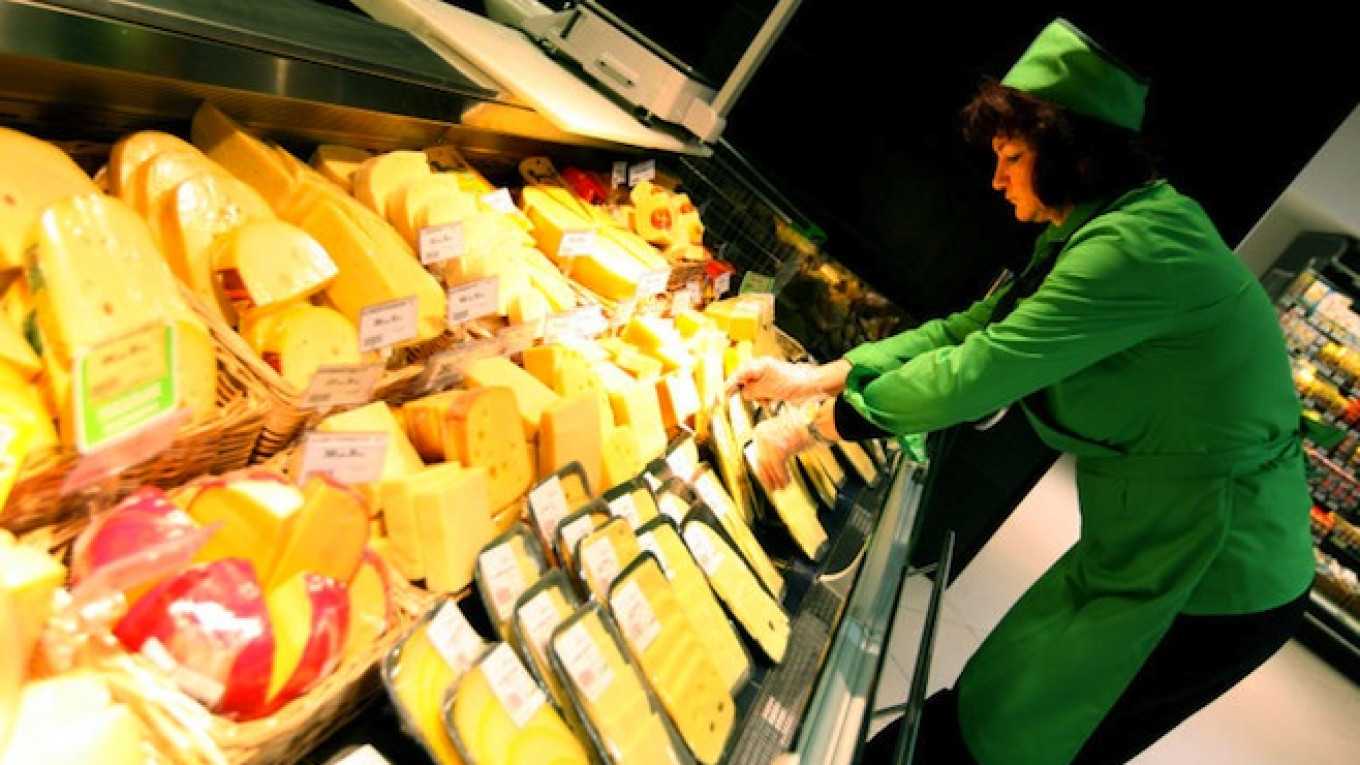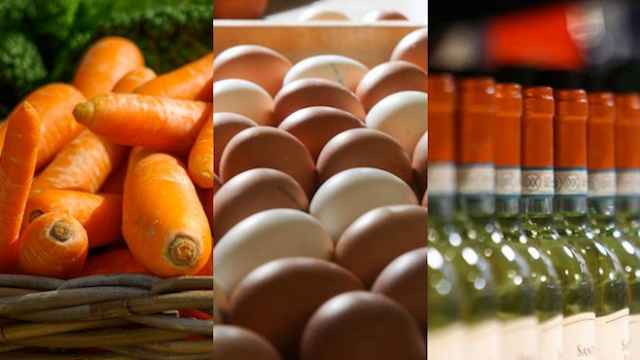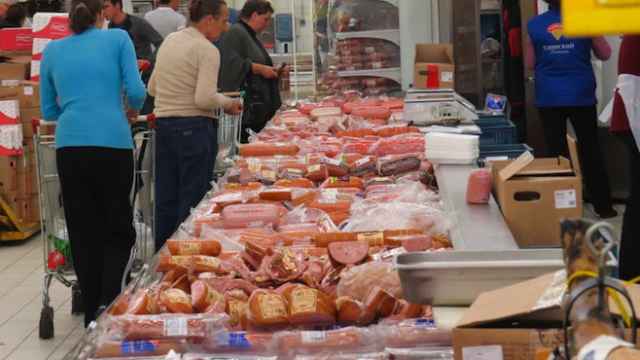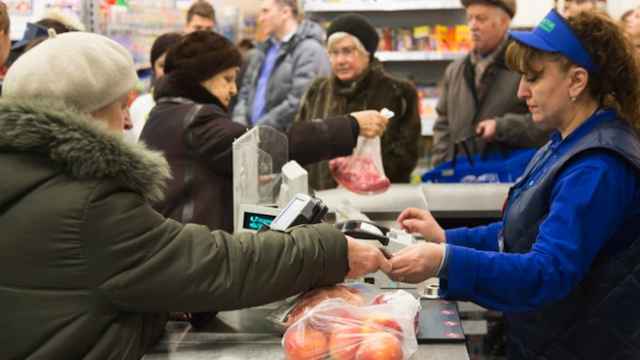Russia looks likely to extend a ban on Western food imports beyond an Aug. 7 deadline, with a lack of incentive to lift its embargo due to the prospect of extended European sanctions.
With President Vladimir Putin supporting moves to boost Russia's "food security," officials have promised to invest more in agriculture to make the country self-sufficient in milk, meat and fruit and vegetable production in the coming years.
The ban on most food imports from the United States, European Union and other countries worth $9 billion is due to run out on Aug. 7, a year after it was imposed in retaliation to Western sanctions on Russia over the Ukraine crisis.
But with the European Union suggesting it will extend sanctions on Russia until a peace deal on Ukraine, agreed in Minsk in February, is implemented by the end of 2015, there is little incentive for Moscow to lift the ban.
"We are not currently considering canceling the ban,” Deputy Prime Minister Arkady Dvorkovich told reporters on Wednesday.
Kremlin spokesman Dmitry Peskov has hinted that the decision would depend on the outcome of an EU summit in June when the bloc will take a decision on whether to extend sanctions that expire in July.
On his annual televised call-in earlier this month, Putin underlined the importance of agriculture and he later appointed a new agriculture minister to spur domestic output.
"Domestic production and food security are extremely important, and we will seek to ensure them. Would we have taken these counter actions or not without the sanctions? The answer is no. But now we are doing it," he added.
His call has been taken up. Dvorkovich told the upper house of parliament on Wednesday that agriculture was the only sector which the government agreed needed additional funds in 2015.
He said the support should not decline in 2016 and 2017 to ensure that the country will be all but self-sufficient in milk production in seven to 10 years, and in meat, fruit and vegetable production by 2020.
Analysts said an easing of the economic situation had also helped the case for the food ban, which spurred food inflation in late 2014 when the ruble plunged. The currency has since stabilized, making food imports less expensive.
"At the end of 2014 … everything was looking very bad," said Anna Vaananen, a portfolio manager at Credit Suisse.
"All of these issues are moving in the right direction now."
A Message from The Moscow Times:
Dear readers,
We are facing unprecedented challenges. Russia's Prosecutor General's Office has designated The Moscow Times as an "undesirable" organization, criminalizing our work and putting our staff at risk of prosecution. This follows our earlier unjust labeling as a "foreign agent."
These actions are direct attempts to silence independent journalism in Russia. The authorities claim our work "discredits the decisions of the Russian leadership." We see things differently: we strive to provide accurate, unbiased reporting on Russia.
We, the journalists of The Moscow Times, refuse to be silenced. But to continue our work, we need your help.
Your support, no matter how small, makes a world of difference. If you can, please support us monthly starting from just $2. It's quick to set up, and every contribution makes a significant impact.
By supporting The Moscow Times, you're defending open, independent journalism in the face of repression. Thank you for standing with us.
Remind me later.






